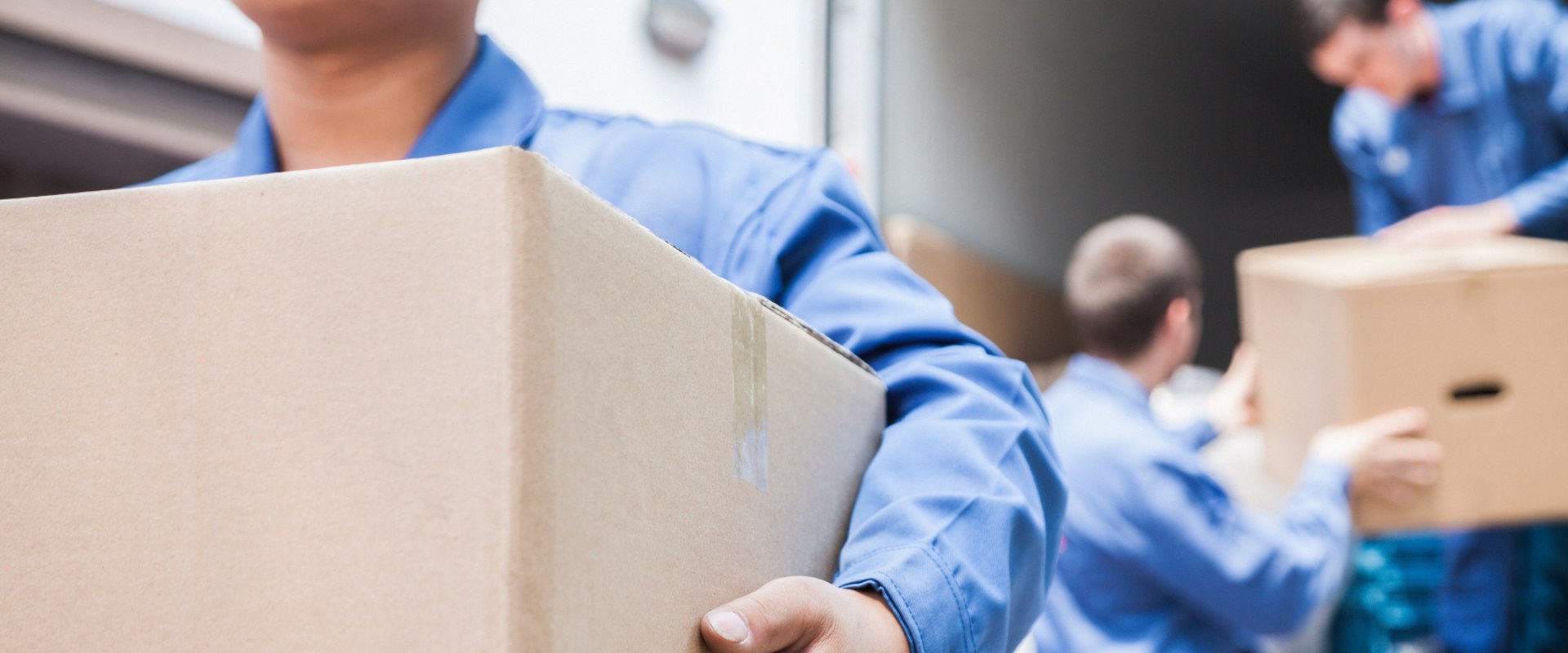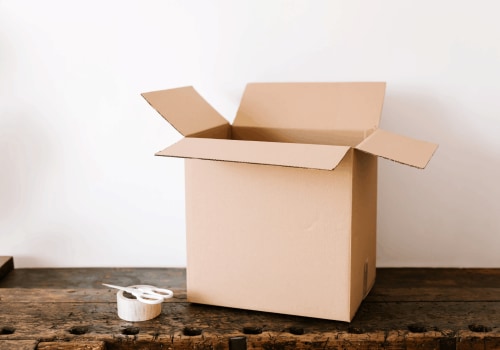Moving to a new state or across the country can be an exciting adventure, but it also comes with its fair share of challenges. One of the most important aspects of planning for a long-distance move is ensuring that you have proper insurance coverage. This means protecting your belongings and valuables during the relocation process, as well as safeguarding yourself against any potential mishaps that may occur along the way. In this article, we will explore the importance of having adequate insurance coverage for your long-distance move and how it can provide you with peace of mind and financial security.
Whether you are moving for work, family, or simply a change of scenery, choosing a reputable moving company and understanding your insurance options is crucial for a smooth and stress-free relocation. So let's dive into the world of interstate and cross-country relocation and discover why proper insurance coverage should be at the top of your moving checklist. Moving to a new state or across the country can be an exciting but daunting task. One of the key things you need to consider is finding a reputable and professional moving company to help you with your long-distance move. This article will provide you with all the necessary information on why proper insurance coverage is essential for your move and how to choose the best moving company for your needs. Understanding Your Insurance Needs:When it comes to moving, there are several types of insurance coverage that moving companies offer.
The most common types include basic liability, full value protection, and third-party insurance. Basic liability is the most basic form of insurance and typically covers damages up to a certain amount per pound of your items. Full value protection, on the other hand, provides coverage for the full value of your items in case of damages or loss. Third-party insurance allows you to purchase additional coverage from a third-party company.
Each type has its own pros and cons, so it's important to understand your specific needs before choosing one. The Importance of Proper Insurance Coverage:Having proper insurance coverage is crucial for a successful long-distance move. While no one wants to think about potential risks and damages during a move, they can and do happen. Without proper insurance coverage, you could end up facing significant financial losses. With the right coverage, you can have peace of mind knowing that your items are protected in case of any unexpected situations. Researching Moving Companies:When it comes to choosing a reputable and professional moving company, it's important to do your research.
Start by checking their reputation and experience in the industry. You can also look into the services they offer and read customer reviews to get a better understanding of their quality of service. Understanding Quotes:When getting quotes from different moving companies, it's important to understand how they calculate their prices. Factors such as distance, weight, and additional services can all affect the final cost. It's recommended to get quotes from multiple companies and compare prices and services to find the best option for your budget. Questions to Ask Moving Companies:Before making a decision, it's important to ask potential moving companies important questions.
These can include inquiries about their insurance coverage, services offered, and any additional fees that may not be included in the initial quote. Checking for Proper Licensing and Insurance:To ensure that you are working with a reputable and trustworthy moving company, it's important to check their licensing and insurance status. This information can usually be found on their website or by contacting them directly. It's also recommended to check with the Department of Transportation for their license and insurance status. Additional Tips for a Successful Move:In addition to choosing a reputable moving company and having proper insurance coverage, there are other tips that can help make your long-distance move go smoothly. These can include packing tips, creating a moving checklist, and preparing for any unexpected situations that may arise during the move. Handling Claims:In case of any damages or loss during the move, it's important to understand the process of filing a claim.
This usually involves providing documentation of the damages or loss and following up with the moving company. It's important to be aware of the timeline for filing a claim and to keep all necessary documentation. Avoiding Scams:Unfortunately, there are scams in the moving industry that can leave you with damaged or lost items and a hefty bill. To avoid falling victim to these scams, it's important to watch out for red flags such as extremely low prices, lack of licensing and insurance, and upfront payment requirements. It's also recommended to thoroughly research any potential moving company before making a decision. The Importance of Reading Reviews:Lastly, reading reviews and testimonials from previous customers can give you a better understanding of a moving company's reputation and customer satisfaction.
This can help you make an informed decision when choosing the best moving company for your long-distance move.
Reading Reviews
When searching for a reputable moving company for your long-distance move, one of the most valuable resources you can use is reading reviews and testimonials from previous customers. These reviews can provide you with important insights into the quality of service and customer satisfaction that the moving company offers. By reading reviews, you can get a better understanding of the company's reputation, reliability, and professionalism. You can also learn about any potential red flags or warning signs that may indicate a problematic moving experience. Additionally, reading reviews can also help you compare different moving companies and make an informed decision. Look for companies with consistently positive reviews and high ratings, as this is a good indication of their commitment to providing excellent service. Make sure to read reviews from multiple sources, such as Google, Yelp, and the company's website.Be wary of companies with only a few reviews or those with a large number of negative reviews. Overall, reading reviews is an essential step in choosing a reputable moving company for your long-distance move. It can save you from potential scams or subpar service and ensure that your belongings are in safe hands during your relocation.
Types of Insurance Coverage
When it comes to moving to a new state or across the country, proper insurance coverage is crucial. It provides you with financial protection in case of any damages or losses during the moving process. However, not all moving companies offer the same type of insurance coverage, and it's essential to understand the different options available to you. The most common type of insurance coverage offered by moving companies is called Released Value Protection.This coverage is included in the base price of your move and provides minimal protection based on the weight of your items. It typically offers $0.60 per pound per item, which may not be enough to cover the full value of your belongings. The second type of insurance coverage is called Full Value Protection. This coverage requires an additional fee but offers more comprehensive protection for your items. In case of any damages or losses, the moving company will either repair or replace the item or provide you with a cash settlement based on the current market value. Another option is Third-Party Insurance, where you purchase insurance from a third-party company to cover your move.
This option may offer more comprehensive coverage and can be tailored to fit your specific needs. Lastly, some moving companies may offer additional coverage options such as Extra Care Protection or High-Value Coverage. These options may be beneficial if you have valuable or fragile items that require extra care during the move.
Researching and Comparing Moving Companies
When it comes to choosing a moving company for your long-distance move, it's important to do your research and compare different options. This will ensure that you find the best company for your specific needs and budget. Here are some tips for researching and comparing moving companies:- Check their credentials: Make sure the moving company is licensed and insured.
You can verify this information with the Federal Motor Carrier Safety Administration (FMCSA).
- Read reviews: Look for reviews from previous customers to get an idea of their experiences with the company. You can also check with the Better Business Bureau to see if there are any complaints filed against the company.
- Get multiple quotes: Don't settle for the first quote you receive. Get quotes from at least three different moving companies to compare prices and services offered.
- Ask about insurance coverage: Make sure the moving company offers proper insurance coverage for your belongings during the move. This will protect you in case of any damages or loss.
Remember to take your time and thoroughly research each company before making a decision. Your belongings and peace of mind are worth it.
Questions to Ask Moving Companies
When searching for a reputable moving company for your long-distance move, it's important to ask the right questions to ensure you are making the best decision for your needs. Here are some key questions you should ask when speaking with potential moving companies:- Do you have proper insurance coverage? This is the most important question to ask when considering a moving company. Proper insurance coverage ensures that your belongings will be protected in case of any damages or losses during the move.
- What type of insurance do you offer? There are different types of insurance that moving companies may offer, such as full value protection or released value protection. Make sure you understand the difference and choose the option that best fits your needs.
- Do you have experience with long-distance moves? Long-distance moves require a different level of expertise than local moves.
- What is your pricing structure? Be sure to get a detailed breakdown of the moving company's pricing structure, including any additional fees or charges that may apply. This will help you avoid any surprises on moving day.
Ask for proof of insurance and make sure it covers all of your items.
It's important to choose a moving company that has experience with long-distance moves and understands the logistics involved.
Filing a Claim
The process of filing a claim in case of damages or loss during the move can be overwhelming and confusing.However, it is important to understand the steps involved to ensure that you receive proper compensation for any potential damages or losses. First and foremost, it is essential to thoroughly document any damages or losses that occur during the move. This includes taking pictures and videos of the items before and after they are packed, as well as keeping track of any damage reports or inventory lists provided by the moving company. Next, you will need to contact your moving company to inform them of the damages or losses. This should be done as soon as possible, ideally within 24 hours of the move. Be sure to have all documentation and evidence ready to provide to the company. The moving company will then review your claim and determine the appropriate amount of compensation.
They may also request additional documentation or evidence to support your claim. Once the claim has been reviewed and approved, the moving company will typically offer a settlement amount. It is important to carefully review this offer and negotiate if necessary. If you are not satisfied with the settlement amount, you may choose to seek legal advice. Overall, filing a claim for damages or losses during a long-distance move can be a complex process. By understanding the steps involved and properly documenting any damages or losses, you can ensure that you receive proper compensation for your belongings.
Avoiding Scams
Moving to a new state or across the country can be an exciting but daunting task.However, with the rise of scams and fraudulent activities in the moving industry, it is important to protect yourself and your belongings. Here are some tips on how to avoid potential scams when choosing a moving company for your long-distance move. Firstly, do your research and thoroughly vet the moving company before hiring them. Look for reviews and ratings from previous customers and check their accreditation and licenses.
A reputable company will have all the necessary documentation and will be transparent about their services and pricing. Secondly, be wary of unusually low prices or quotes that seem too good to be true. These are often red flags for fraudulent companies who may end up overcharging you or holding your belongings hostage until you pay additional fees. Get multiple quotes from different companies and compare them to ensure you are getting a fair price.
Thirdly, avoid companies that ask for large deposits or full payment upfront. A legitimate moving company will only ask for payment upon delivery of your belongings. If a company asks for upfront payment, it is best to look for another option. Lastly, be cautious of companies that do not have a physical address or use unmarked trucks.
It is important to have a physical address as a point of contact in case of any issues or complaints. Unmarked trucks could also indicate that the company is not legitimate or licensed. By following these tips, you can protect yourself from potential scams and ensure a smooth and stress-free long-distance move. Remember, proper insurance coverage is crucial in case of any damages or loss during the move, so make sure to choose a reputable and insured moving company for your relocation.
Additional Tips for a Successful Move
Moving to a new state or across the country can be a daunting task, but with proper planning and preparation, it can also be an exciting adventure.In addition to finding a reputable and professional moving company, there are a few additional tips that can help make your long-distance move stress-free and successful.
1.Start early:
It's important to start planning for your move as early as possible. This will give you enough time to research and compare moving companies, pack your belongings properly, and tie up any loose ends before the big day.2.Create a budget:
Moving can be expensive, especially if you're moving long-distance. It's important to create a budget and stick to it to avoid any financial surprises.3.Declutter:
Moving is the perfect time to get rid of any items you no longer need or use. Not only will this save you time and money on packing and moving, but it will also give you a fresh start in your new home.4.Label your boxes:
Labeling your boxes with the contents and which room they belong in will make unpacking much easier and less stressful.5.Keep important documents with you:
It's always a good idea to keep important documents such as birth certificates, passports, and medical records with you during the move instead of packing them with your other belongings.6.Pack an essentials box:
Pack a box with all the essential items you'll need for the first few days in your new home, such as toiletries, clothes, and important documents.This will save you from having to unpack everything immediately.
7.Stay organized:
Keep all your moving documents, contracts, and receipts in one place so you can easily access them if needed.8.Communicate with your movers:
Communication is key when it comes to a successful move. Make sure to communicate any special requirements or concerns with your moving company.9.Take care of yourself:
Moving can be physically and emotionally draining, so make sure to take breaks, stay hydrated, and get enough rest during the process.10. Celebrate your new home:
Once the move is complete, take some time to celebrate and enjoy your new home. You deserve it after a successful long-distance move!Proper insurance coverage is crucial for your long-distance move. By understanding your insurance needs, researching and comparing moving companies, asking the right questions, and being prepared for unexpected situations, you can ensure a successful and stress-free move.Remember to always choose a licensed and insured moving company, and don't forget to read reviews and testimonials before making a decision.







